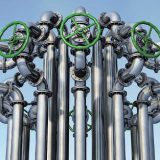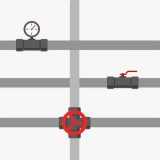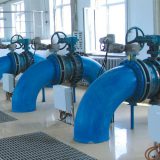Electric Valves
Valve electric actuators are mainly used in power plants or nuclear power plants where a smooth, stable, and slow process is required in high-pressure water systems. The main advantage of electric actuators is the high stability and constant thrust that can be applied by the user. The maximum actuator can produce thrust up to 225000kgf, the only one that can achieve such a large thrust is the liquid actuator, but the cost of the liquid actuator is much higher than the electric one.
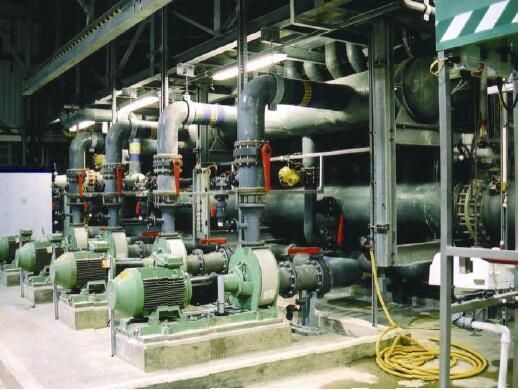
The electric actuator’s ability to resist deviation is very good, and the output thrust or torque is basically constant, which can overcome the unbalanced force of the medium well and achieve accurate control of the process parameters, so the control accuracy is higher than that of the pneumatic actuator.
If equipped with a servo amplifier, it can easily realize the interchange of positive and negative action, and also can easily set the state of broken signal valve position (hold/fully open/fully closed), and when it fails, it must stay in the original position, which is not possible with pneumatic actuator, and the pneumatic actuator must realize the position preservation with the help of a set of the combined protection system.
The disadvantages of electric actuators
The structure is more complex and more prone to failure, and because of its complexity, the technical requirements for the field maintenance personnel are relatively high; the motor operation should generate heat, and if the adjustment is too frequent, it is easy to cause the motor to overheat and generate thermal protection, and also increase the wear and tear of the reduction gear; in addition, it is slower, from the regulator output a signal, to the regulating valve response and movement to the corresponding position, it takes longer time, which is it is not as good as the pneumatic, hydraulic actuator.
Pneumatic valves
The valve pneumatic actuator and regulating mechanism are a unified whole, the actuator has two types of film and piston type. The piston type of pneumatic ball valve has a long stroke and is suitable for the occasion requiring a large thrust; while the film type has a smaller stroke and can only drive the valve stem directly.
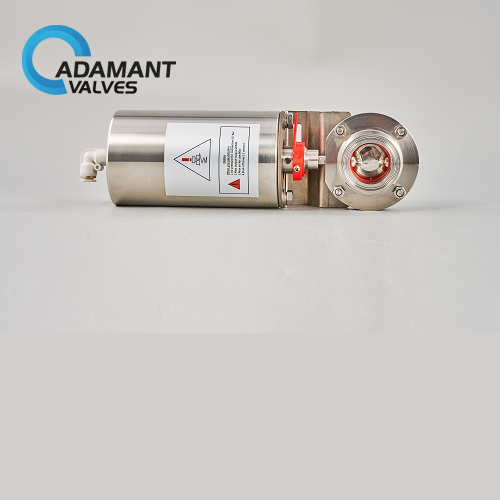
Due to the advantages of simple structure, high output thrust, smooth and reliable operation, and safety and explosion-proof, pneumatic actuators are widely used in power plants, chemicals, oil refineries, and other production processes with high safety requirements.
The main advantages of pneumatic actuators
It accepts continuous gas signals and outputs linear displacement (after adding an electric/gas conversion device, it can also accept continuous electric signals), and some of them can output angular displacement after being equipped with a rocker’s arm.
With positive and reverse action functions.
The moving speed is large, but the speed will slow down when the load increases.
The output force is related to operating pressure.
High reliability, but the valve cannot be maintained after the air source is interrupted (it can be maintained after adding a position-keeping valve).
Not convenient to realize sectional control and program control.
Easy to inspect and maintain, good adaptability to the environment.
Higher output power.
Explosion-proof function.
